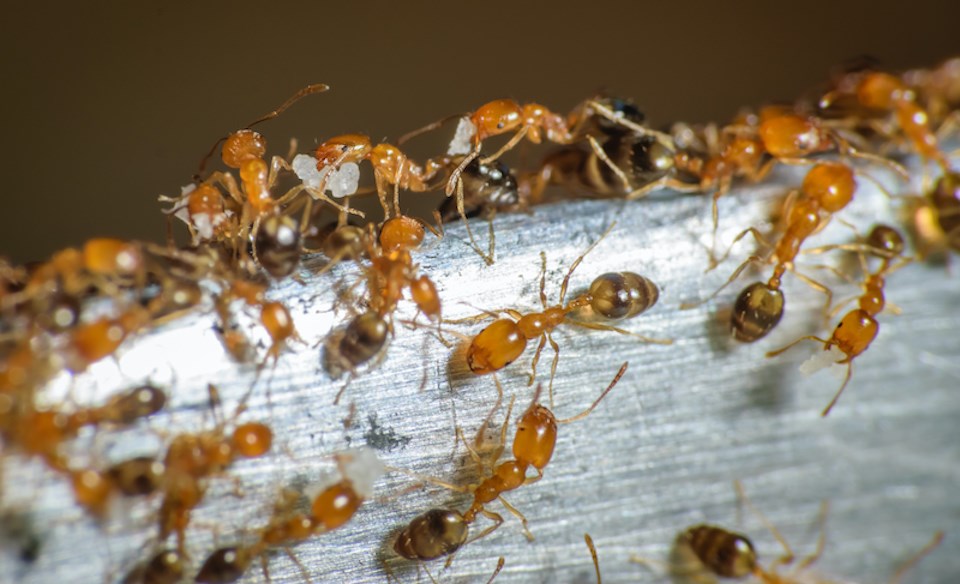The Metro Vancouver weather forecast includes warmer-than-average temperatures this winter -- but that doesn't seem to have dissuaded a notorious pest from moving indoors.
Pharoah ants have a name as mighty as their impact on homes. While they are small, they wreak havoc on everything from single-person dwellings to apartment buildings.
Mike Londry, owner of Vancouver-based Westside Pest Control, says calls regarding the tiny insects have increased over the past few years and can cause massive infestations.
"It takes a lot to make a pest control technician raise their eyebrows," he told V.I.A.
While some pest problems gradually evolve, pharaoh ants spread rapidly. They can spread from one apartment to adjacent units if the infestation isn't dealt with right away. While this happens with other pests, such as bed bugs or mice, they move much quicker.
"This is the worst offender in terms of how fast it can spread," Londry said, adding that the worst infestation he saw had ants in every unit of an apartment building.
Adam Jirousek, a technician with Westside Pest Control, said people can make infestations worse by trying to handle them on their own.
"If you spray them with Raid, this can kill them immediately but then they go into defensive mode," he explained, noting that the best way to battle them is to use poison bait.
Tropical ants are sensitive and go into "reproductive overdrive" when faced with a threat. Queens break off from the original colony and migrate to different, safer locations.
"The big challenge with these insects is in multi-unit buildings. In a single home, it's not so bad," Jirousek noted.
Metro Vancouver weather doesn't support pharaoh ants
Pharoah ants are an invasive species that can't survive in Vancouver's climate, particularly when temperatures dip low over the winter. Also, they are very tiny and susceptible to many larger predators, including larger ants.
Ideally, the tropical ants prefer to live in places with temperatures around 25 to 30 C with humidity around 80 per cent. Unlike many other ant species, pharaoh ants only need a void in a wall to create a colony; they don't need any soil or wood, which makes it easier for them to start a colony in a new space.
The ants use "water pipes and electrical cables to travel through the building, and workers can forage up to 50 [metres] from the nest," according to Londry.
They create new nests in a process known as "budding," which occurs when a queen migrates from the original colony and brings some workers and juveniles.
The first time he dealt with a pharaoh ant issue was at a home in North Vancouver in 2007. But calls regarding the ants have increased over the years and peaked a couple of years ago during the pandemic.
Unfortunately, pharaoh ants aren't only an unsightly nuisance; they can transfer disease pathogens such as salmonella and Streptococcus. In hospitals, where they can spread rapidly, they can enter wounds, enter IV bottles, and "can sometimes even seek moisture from the mouths of sleeping patients," according to Westside Pest Control.
"Because they’re so small, they can get into even the most secure food packaging. This means that they may contaminate food (make the food unsafe) with germs they pick up travelling through buildings."
To make your home less desirable to pharoah ants, use the following tips from Westside Pest Control.
- Clean up food spills as soon as they happen
- Keep all food stored in sealed plastic or glass containers so that ants can’t get to it.
- Take care of any water drips or leaks – Pharaoh ants love water.
- Keep pet food covered when your pets aren’t eating
- Use a dehumidifier or bathroom fans to prevent moisture build-up inside
Londry shared a video of an infestation his company recently dealt with, that shows someone's kitchen floor teeming with ants.




